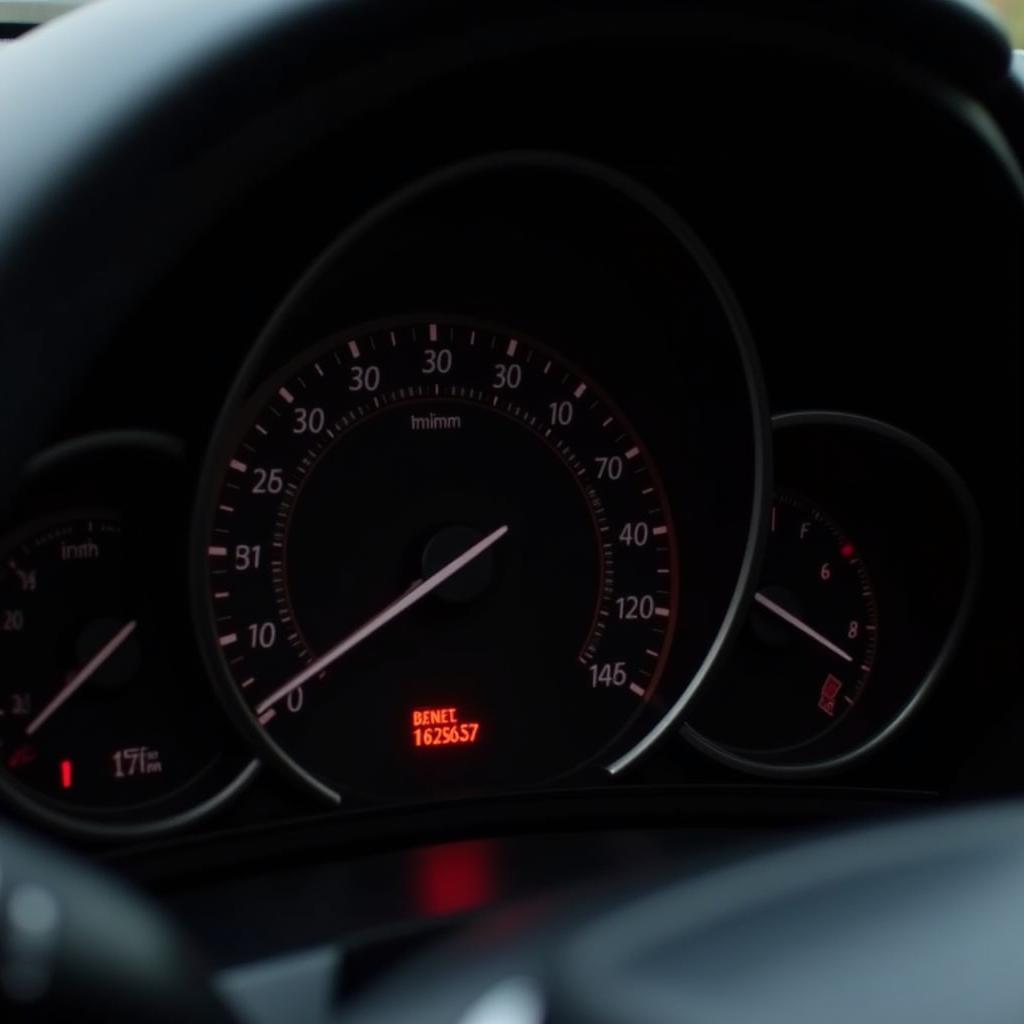Your car won’t start even after a jump start? This can be incredibly frustrating, but don’t panic. We’ll guide you through the common causes and solutions to get you back on the road. Read on to discover how to diagnose and troubleshoot this problem effectively. the car wont start
Why Your Car Won’t Start Even After a Jump Start
Numerous reasons can contribute to a car not starting even with a jump start. These can range from a simple loose connection to more complex electrical or mechanical issues. Let’s explore some of the most frequent culprits:
Faulty Battery Connections
A corroded or loose battery terminal can prevent the jump starter from effectively transferring power. Even if the jump start initially appears successful, these faulty connections can hinder the car from maintaining the charge needed to start.
Bad Starter Motor
A faulty starter motor is another common culprit. Even with sufficient power from a jump, a malfunctioning starter won’t be able to crank the engine. Clicking sounds when turning the key are a telltale sign of a starter issue.
Drained or Dead Battery
Sometimes, a battery is simply beyond recovery, even with a jump start. If your battery is old or has been deeply discharged multiple times, it might be time for a replacement. If your car’s battery is completely drained, you can find more information on our dedicated page about battery drained car won t start.
Faulty Alternator
The alternator is responsible for recharging the battery while the engine is running. A faulty alternator can lead to a discharged battery, and even if jump-started, the car won’t start again once turned off because the battery isn’t being recharged.
Ignition System Problems
Issues within the ignition system, such as a bad ignition coil or a faulty ignition switch, can prevent the car from starting even with a jump start. These components are crucial for delivering the spark needed to ignite the fuel in the engine cylinders.
Fuel System Issues
While less common, problems with the fuel pump, fuel filter, or fuel injectors can also prevent the car from starting. These components are essential for delivering fuel to the engine.
What to Do When Your Car Won’t Start With a Jump Start
If you’ve jump-started your car and it still refuses to start, follow these steps:
- Check Battery Connections: Ensure the battery terminals are clean, tight, and free of corrosion.
- Inspect the Starter Motor: Listen for clicking sounds when turning the key, which may indicate a starter problem.
- Test the Battery: Use a multimeter to check the battery voltage. A reading below 12.6 volts suggests a weak or dead battery. You can find helpful information on our guide on the various reasons your car battery dies.
- Consider the Alternator: If the car starts after a jump but dies shortly after, the alternator may be faulty.
- Check the Ignition System: Examine the ignition coil, distributor cap, and rotor (if applicable) for damage or wear.
“When a car won’t start after a jump, it’s important to systematically check the key components involved in the starting process,” says automotive diagnostics expert, John Smith, ASE Master Technician. “Starting with the battery connections and moving to the starter and alternator is a good approach.”
Conclusion
A car that won’t start with a jump start can be a sign of various underlying problems. By following the steps outlined in this article, you can diagnose the issue and take the necessary steps to get your car running smoothly again. Remember that a car that won’t start with a jump start can sometimes indicate more significant electrical issues. Consult a qualified mechanic if you’re unable to identify the problem or if the issue persists. If you have experienced a check engine light after jump starting your car, it is recommended to check out our article about check engine light after jump start. If you believe your car battery is drained, our guide on my car battery is completely drained offers valuable information.
FAQ
- Can a bad starter cause a car not to start after a jump? Yes, a faulty starter motor is a common reason.
- What should I do if my car battery won’t hold a charge? Have your battery and alternator tested by a mechanic.
- How can I tell if my alternator is bad? Dim headlights, flickering dashboard lights, and a battery that constantly dies are indicators.
- Can a bad ignition switch prevent a car from starting? Yes, a faulty ignition switch can interrupt the flow of power to the starter.
- What should I check if my car clicks but won’t start after a jump? This usually points towards a starter problem or weak battery connections.
- Is it safe to jump start a modern car? Generally yes, but consult your owner’s manual for specific instructions.
- Can a blown fuse prevent a car from starting? Yes, but it’s less common than other causes listed here.

